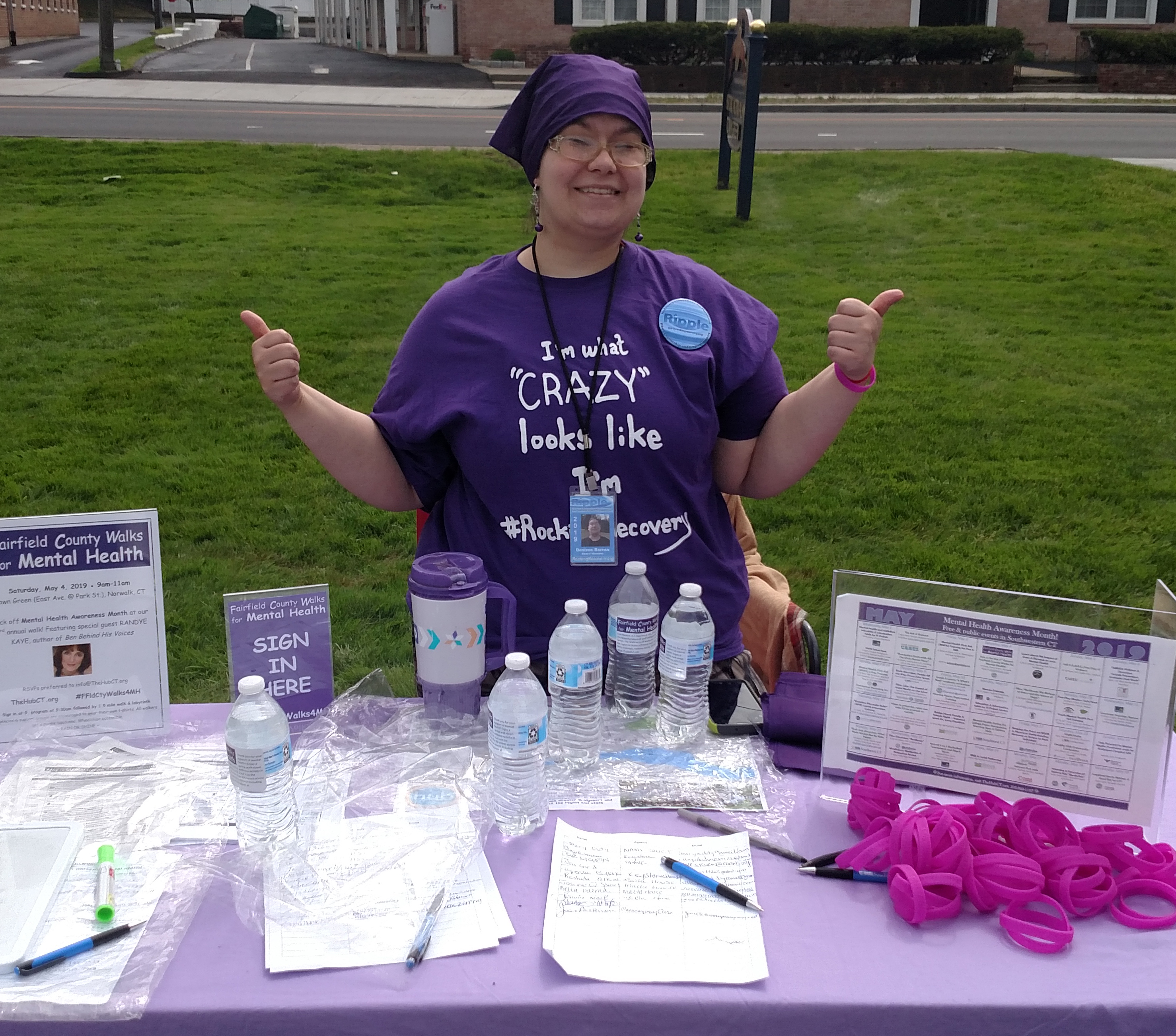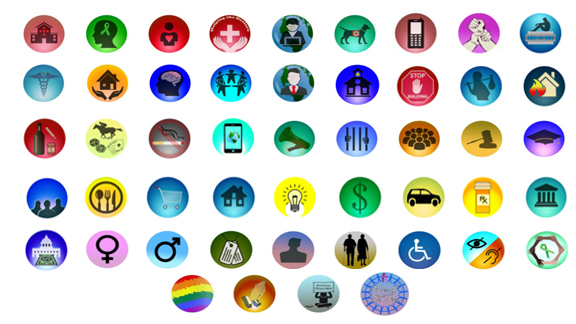
Have you ever needed to take a step back and take a long hard look at something? As we found ourselves putting the finishing touches on our third quarter newsletter, our community was hit with some unfortunate news. A friend, Recovery Support Specialist, advocate, and all-around amazing person took their life a few days before this was scheduled to be published. This was a person who had trained as an Alternatives to Suicide facilitator, someone who knew about the resources available, and who knew dozens of people in the peer recovery community who would have listened if they had reached out. So why did this happen?

We would wager that we now have more people trained in suicide prevention than at any other time in our nation’s history. Despite this, we are seeing a record number of people taking their own lives. It seems that raising awareness did little to prevent numbers from continuing to trend in the wrong direction. Do we need more resources? Do we need to have better access to trained professionals?
On February 22, 2019, the Hartford Courant reported that a social worker with 19 years of experience took her own life on the Connecticut Valley Hospital campus. She worked at a mental health hospital and knew people who received training to see the warning signs of a person who may be contemplating suicide.
What led up to a mental health worker feeling so uncomfortable with the hospital she worked in that she did not or could not reach out for help? Sadly in an article published on June 18, 2021, we may have gotten our answer. According to the Connecticut Mirror, a UCONN Health survey conducted at the Connecticut Valley Hospital and Whiting Forensic Hospital showed a concerning number of hospital staff being pressured and bullied while on the job. If this is how some staff members feel, one can only wonder about the environment they are creating for their clients. At this point, Ripple is unaware of anyone else making this connection or asking if these events could be related.
Every person who takes prevention classes such as Applied Suicide Intervention Skills Training (ASIST) or Question Persuade Refer (QPR) has the same problem. We can only encourage those we encounter to seek professional help from the same system that continues to see deaths by suicide increasing almost every year. LivingWorks is a leader in suicide prevention training, and one of their most popular programs is called safeTALK. According to their website, more than 120,000 people attend safeTALK every year, but are all these efforts helping in the long run? Aren’t we just creating 120,000 more chances that a person in distress is directed to the same broken system of care?

So the critical question is what needs to be done to move forward? How do we bend the trend and reduce the number of people we lose every year? One essential step is to have dedicated mobile crisis teams that do not include a uniformed police officer. In cases where a person is experiencing suicidal ideations, a violent outburst is rare. All police involvement provides is an increased chance of suicide by cop. Plus, police officers are under enough stress dealing with criminals. In a USA Today article published back in 2018, they reported that 46 police officers were fatally shot in the previous year. In that same year, 140 officers died by suicide. With all due respect to our men and women in law enforcement, they are not mental health providers, and that responsibility should not be placed on their shoulders.
Page 1
Let’s start asking questions that lead to fundamental changes. This quarter, we will address a topic that has been brought up in peer forums, on zoom calls, and in general conversations about suicide prevention over the last several years.
What components should a mobile crisis team have? For starters, a mobile crisis team should arrive at a location in an ordinary-looking vehicle. If a person is experiencing a mental health crisis drawing the attention of their entire neighborhood with four police cars and an ambulance pulling up in front of their home is not a comforting feeling.
Have you ever heard the expression, you never get a second chance to make a first impression? Whenever we talk about how to address a person in crisis, that phrase should be the foremost thing on our minds when trying to formulate new ideas.
We believe that a mobile crisis team leader should be either an MSW or LCSW, someone able to start a case file if needed and make a call if hospitalization is necessary. The team leader should be in a supervisory role and only step in if needed. There should be two persons with lived experience who have become certified peer supporters. The two-person peer component will allow one to speak to the person in distress and the second to talk to any friends or family who witnessed the crisis unfold. Both peers should have basic first aid and Narcan training.
An ambulance should be dispatched to the area but should not be onsite unless required by a medical emergency. Police can also be alerted to the situation, directed to the area, and keep enough distance to stay out of sight. The intervention of first responders should be considered a last resort.

A look back at Fairfield County’s 2019 Walk for Mental Health. Being away from all the wonderful people in our community due to Covid, this seems like a lifetime ago. We are looking forward to the summer ahead and returning to in-person gatherings.



Page 2
Thank you for your support and encouragement! A little more than nine months ago, Ripple launched our late-night peer support group. So far, the co-hosts of this group have seen more than 400 volunteer hours each of Zoom time.

www.RockingRecovery.org
Ripple’s site, RockingRecovery.org, continues to grow! We officially launched as a community resource on May 1st, 2019, and since that time, it has taken on a life of its own. The most visited section of this site is the CT RESOURCE LINKS page, where we have programs and services for people in Connecticut who need help. As of the publication of this newsletter, we offer 49 different demographical categories that lead to hundreds of agencies and providers. When combined, they provide more than 1,620 resources within the state. This section of the site is icon-driven, which allows you to quickly scan through the services and find the help you need.
RockingRecovery.org is proud to be listed as a community resource on the Connecticut Department of Mental Health and Addiction Services (DMHAS) website. As we move into 2021, one of our goals is to improve our site and make it as useful as possible for those in the peer recovery community. We have set a goal to add a minimum of 500 new resources during the upcoming year.
One of our philosophies is you only need three things to help someone, hope, time, and compassion. It is our goal to show others out there that Connecticut offers a vast network of organizations, services, and programs for people living with mental illness and addiction… That they are not alone and that people are willing to support them in their recovery.
Ripple’s mission is simple, as people with lived experience in the mental health and substance abuse services system, we seek to empower our peers. To use our voices to educate, inform, and inspire new leaders in our community. We will bring new and innovative ideas to the recovery processes for the benefit of all. RockingRecovery.org is one of the tools that will help is be successful in that goal.

This website is made up of over 170 pages and has taken over 800 hours of work to get to where we are now. Currently, we are aware of more than a dozen agencies using our site to better serve their clients. RockingRecovery.org has become a useful tool to help their clients get connected to outside services that improve the quality of their lives. We hope this will be picked up by more providers in the area, and it can bring more help to those who need it.

A note from the webmaster:
RockingRecovery.org is a lot like a person’s recovery journey; it does not happen all at once, and at some points, it won’t go exactly as planned. We will hit obstacles and have setbacks, but with enough time, we will see our way clear and be able to move forward. It is our goal to create the most useful site possible for our community and peers. We will be continuously adding the CT Resource Links section and expect that it, just like recovery itself, will always be a work in progress.
Page 4



